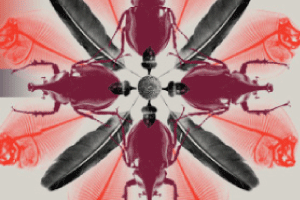
States to Senate: We have a problem
State governments have told the Senate inquiry into environmental biosecurity that the system is failing.

State governments have told the Senate inquiry into environmental biosecurity that the system is failing.

More than 5.7 million bats have died in North America since 2006 from white nose syndrome (WNS), a disease caused by the fungus Pseudogymnoascus destructans.

Five years worth of efforts in improving NSW invasive species laws came excruciatingly close to reality. In the end the Bill failed to pass Parliament.

A new global survey shows that new pasture plants such as grasses present a substantial weed risk yet these plants are still widely developed and sold in Australia with little regulation from government.
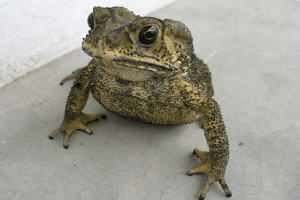
A ‘top six on the richter scale’ list of high priority threats to the environment provided to the Senate biosecurity inquiry begs many more questions than it answers.
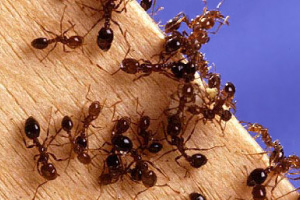
The evidence provided to the Senate inquiry has demonstrated that Australia’s biosecurity system is failing in multiple ways to prevent the arrival of harmful new invaders. Here we summarise the highlights of the public hearings.
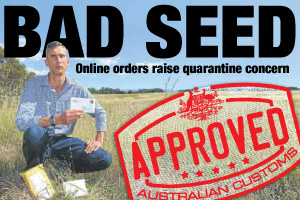
The Invasive Species Council recently tested how easy it is to buy prohibited weeds online, and found quarantine seriously wanting.
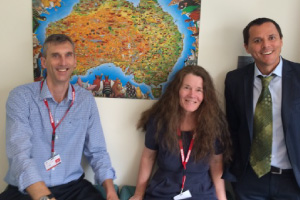
The Senate inquiry on environmental biosecurity has been useful for revealing gaping holes in Australia’s preparation for new invasive species and flushed out the views of government about our proposal for a dedicated body to prepare for invasive species.
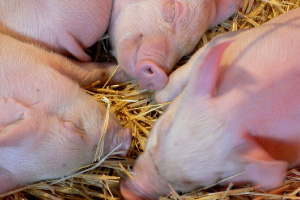
The NSW primary industries minister threatened to use biosecurity laws to prosecute animal activists. Animal activists just as much as farmers and other members of the community need to use good biosecurity practices.

Technology giant Hewlett-Packard has made an embarrassing gaff in its latest Australian marketing campaign by encouraging people to help a young boy find his pet iguana, Ralph.
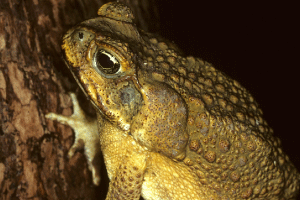
The high rate of new environmental incursions detected since 2000 suggests Australia has not yet learnt from the past. The Invasive Species Council’s submission highlights the lessons that should be learned.
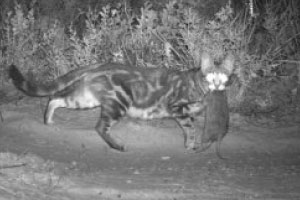
Solving the problem of feral cats in the Australian environment will require long-term, well-resourced steps. But with the right will, it can be done.

These extracts from some of the 83 submissions to the Senate inquiry reveal systemic failure in our environmental biosecurity systems and support for many of the issues raised by the Invasive Species Council.

With a continued high rate of new invasive species arriving and establishing in Australia, it is clear we need a more concerted focus on environmental biosecurity priorities. That is why we have proposed to the Senate inquiry the establishment of a new national body.
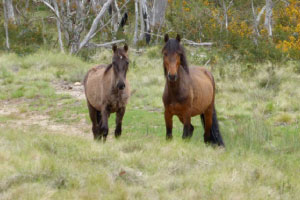
As feral horse numbers grow in the Australian Alps in the absence of an effective control program, so too is concern about the escalating damage.

State governments have told the Senate inquiry into environmental biosecurity that the system is failing.

More than 5.7 million bats have died in North America since 2006 from white nose syndrome (WNS), a disease caused by the fungus Pseudogymnoascus destructans.

Five years worth of efforts in improving NSW invasive species laws came excruciatingly close to reality. In the end the Bill failed to pass Parliament.

A new global survey shows that new pasture plants such as grasses present a substantial weed risk yet these plants are still widely developed and sold in Australia with little regulation from government.

A ‘top six on the richter scale’ list of high priority threats to the environment provided to the Senate biosecurity inquiry begs many more questions than it answers.

The evidence provided to the Senate inquiry has demonstrated that Australia’s biosecurity system is failing in multiple ways to prevent the arrival of harmful new invaders. Here we summarise the highlights of the public hearings.

The Invasive Species Council recently tested how easy it is to buy prohibited weeds online, and found quarantine seriously wanting.

The Senate inquiry on environmental biosecurity has been useful for revealing gaping holes in Australia’s preparation for new invasive species and flushed out the views of government about our proposal for a dedicated body to prepare for invasive species.

The NSW primary industries minister threatened to use biosecurity laws to prosecute animal activists. Animal activists just as much as farmers and other members of the community need to use good biosecurity practices.

Technology giant Hewlett-Packard has made an embarrassing gaff in its latest Australian marketing campaign by encouraging people to help a young boy find his pet iguana, Ralph.

The high rate of new environmental incursions detected since 2000 suggests Australia has not yet learnt from the past. The Invasive Species Council’s submission highlights the lessons that should be learned.

Solving the problem of feral cats in the Australian environment will require long-term, well-resourced steps. But with the right will, it can be done.

These extracts from some of the 83 submissions to the Senate inquiry reveal systemic failure in our environmental biosecurity systems and support for many of the issues raised by the Invasive Species Council.

With a continued high rate of new invasive species arriving and establishing in Australia, it is clear we need a more concerted focus on environmental biosecurity priorities. That is why we have proposed to the Senate inquiry the establishment of a new national body.

As feral horse numbers grow in the Australian Alps in the absence of an effective control program, so too is concern about the escalating damage.

State governments have told the Senate inquiry into environmental biosecurity that the system is failing.

More than 5.7 million bats have died in North America since 2006 from white nose syndrome (WNS), a disease caused by the fungus Pseudogymnoascus destructans.

Five years worth of efforts in improving NSW invasive species laws came excruciatingly close to reality. In the end the Bill failed to pass Parliament.

A new global survey shows that new pasture plants such as grasses present a substantial weed risk yet these plants are still widely developed and sold in Australia with little regulation from government.

A ‘top six on the richter scale’ list of high priority threats to the environment provided to the Senate biosecurity inquiry begs many more questions than it answers.

The evidence provided to the Senate inquiry has demonstrated that Australia’s biosecurity system is failing in multiple ways to prevent the arrival of harmful new invaders. Here we summarise the highlights of the public hearings.

The Invasive Species Council recently tested how easy it is to buy prohibited weeds online, and found quarantine seriously wanting.

The Senate inquiry on environmental biosecurity has been useful for revealing gaping holes in Australia’s preparation for new invasive species and flushed out the views of government about our proposal for a dedicated body to prepare for invasive species.

The NSW primary industries minister threatened to use biosecurity laws to prosecute animal activists. Animal activists just as much as farmers and other members of the community need to use good biosecurity practices.

Technology giant Hewlett-Packard has made an embarrassing gaff in its latest Australian marketing campaign by encouraging people to help a young boy find his pet iguana, Ralph.

The high rate of new environmental incursions detected since 2000 suggests Australia has not yet learnt from the past. The Invasive Species Council’s submission highlights the lessons that should be learned.

Solving the problem of feral cats in the Australian environment will require long-term, well-resourced steps. But with the right will, it can be done.

These extracts from some of the 83 submissions to the Senate inquiry reveal systemic failure in our environmental biosecurity systems and support for many of the issues raised by the Invasive Species Council.

With a continued high rate of new invasive species arriving and establishing in Australia, it is clear we need a more concerted focus on environmental biosecurity priorities. That is why we have proposed to the Senate inquiry the establishment of a new national body.

As feral horse numbers grow in the Australian Alps in the absence of an effective control program, so too is concern about the escalating damage.
Get our blog the Feral Herald delivered to your inbox.
Our protected areas are being trashed, trampled, choked and polluted by an onslaught of invaders. Invasive species are already the overwhelming driver of our animal extinction rate, and are expected to cause 75 of the next 100 extinctions.
But you can help to turn this around and create a wildlife revival in Australia.
From numbats to night parrots, a tax-deductible donation today can help defend our wildlife against the threat of invasive weeds, predators, and diseases.
As the only national advocacy environment group dedicated to stopping this mega threat, your gift will make a big difference.
A silent crisis is unfolding across Australia. Every year, billions of native animals are hunted and killed by cats and foxes. Fire ants continue to spread and threaten human health. And the deadly strain of bird flu looms on the horizon. Your donation today will be used to put the invasive species threat in the media, make invasive species a government priority, ensure governments take rapid action to protect nature and our remarkable native wildlife from invasives-led extinction, death and destruction.
If you are having trouble submitting a form, please read this guide.
Please fill out the following form and one of our team will be in contact to assist as soon as possible. Please make sure to include any helpful information, such as the device you were using (computer, tablet or mobile phone) and if known, your browser (Mozilla Firefox, Chrome, Safari etc)
"*" indicates required fields
Dear Project Team,
[YOUR PERSONALISED MESSAGE WILL APPEAR HERE.]
I support the amendment to the Kosciuszko National Park Wild Horse Heritage Management Plan to allow our incredible National Parks staff to use aerial shooting as one method to rapidly reduce feral horse numbers. I want to see feral horse numbers urgently reduced in order to save the national park and our native wildlife that live there.
The current approach is not solving the problem. Feral horse numbers have rapidly increased in Kosciuszko National Park to around 18,000, a 30% jump in just the past 2 years. With the population so high, thousands of feral horses need to be removed annually to reduce numbers and stop our National Park becoming a horse paddock. Aerial shooting, undertaken humanely and safely by professionals using standard protocols, is the only way this can happen.
The government’s own management plan for feral horses states that ‘if undertaken in accordance with best practice, aerial shooting can have the lowest negative animal welfare impacts of all lethal control methods’.
This humane and effective practice is already used across Australia to manage hundreds of thousands of feral animals like horses, deer, pigs, and goats.
Trapping and rehoming of feral horses has been used in Kosciuszko National Park for well over a decade but has consistently failed to reduce the population, has delayed meaningful action and is expensive. There are too many feral horses in the Alps and not enough demand for rehoming for it to be relied upon for the reduction of the population.
Fertility control as a management tool is only effective for a small, geographically isolated, and accessible population of feral horses where the management outcome sought is to maintain the population at its current size. It is not a viable option to reduce the large and growing feral horse population in the vast and rugged terrain of Kosciuszko National Park.
Feral horses are trashing and trampling our sensitive alpine ecosystems and streams, causing the decline and extinction of native animals. The federal government’s Threatened Species Scientific Committee has stated that feral horses ‘may be the crucial factor that causes final extinction’ for 12 alpine species.
I recognise the sad reality that urgent and humane measures are necessary to urgently remove the horses or they will destroy the Snowies and the native wildlife that call the mountains home. I support a healthy national park where native species like the Corroboree Frog and Mountain Pygmy Possum can thrive.
Dear Project Team,
[YOUR PERSONALISED MESSAGE WILL APPEAR HERE.]
I support the amendment to the Kosciuszko National Park Wild Horse Heritage Management Plan to allow our incredible National Parks staff to use aerial shooting as one method to rapidly reduce feral horse numbers. I want to see feral horse numbers urgently reduced in order to save the national park and our native wildlife that live there.
The current approach is not solving the problem. Feral horse numbers have rapidly increased in Kosciuszko National Park to around 18,000, a 30% jump in just the past 2 years. With the population so high, thousands of feral horses need to be removed annually to reduce numbers and stop our National Park becoming a horse paddock. Aerial shooting, undertaken humanely and safely by professionals using standard protocols, is the only way this can happen.
The government’s own management plan for feral horses states that ‘if undertaken in accordance with best practice, aerial shooting can have the lowest negative animal welfare impacts of all lethal control methods’.
This humane and effective practice is already used across Australia to manage hundreds of thousands of feral animals like horses, deer, pigs, and goats.
Trapping and rehoming of feral horses has been used in Kosciuszko National Park for well over a decade but has consistently failed to reduce the population, has delayed meaningful action and is expensive. There are too many feral horses in the Alps and not enough demand for rehoming for it to be relied upon for the reduction of the population.
Fertility control as a management tool is only effective for a small, geographically isolated, and accessible population of feral horses where the management outcome sought is to maintain the population at its current size. It is not a viable option to reduce the large and growing feral horse population in the vast and rugged terrain of Kosciuszko National Park.
Feral horses are trashing and trampling our sensitive alpine ecosystems and streams, causing the decline and extinction of native animals. The federal government’s Threatened Species Scientific Committee has stated that feral horses ‘may be the crucial factor that causes final extinction’ for 12 alpine species.
I recognise the sad reality that urgent and humane measures are necessary to urgently remove the horses or they will destroy the Snowies and the native wildlife that call the mountains home. I support a healthy national park where native species like the Corroboree Frog and Mountain Pygmy Possum can thrive.